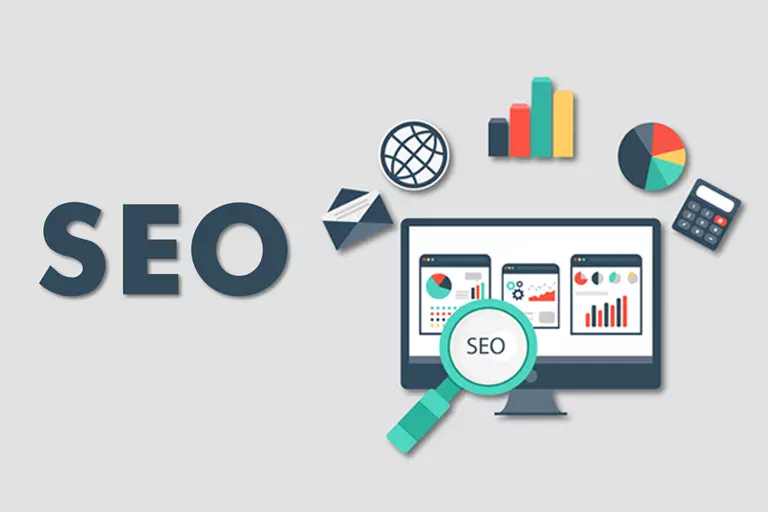In today’s digital age, establishing a robust online presence is no longer a choice; it’s a necessity for any start-up business aiming for success. With millions of websites competing for attention on the vast landscape of the internet, it’s incredibly easy for a new venture to get lost in the virtual crowd. This is where the pivotal role of search engine optimization (SEO) comes into play. In this comprehensive guide, we will delve deep into the significant advantages of SEO for start-up businesses, emphasizing why it should be an integral component of your online strategy.
Advantages of Search Engine Optimization for Your Website
Increased Visibility
At the heart of Search Engine Optimization lies the promise of increased visibility in search engine results. When potential customers search for products or services relevant to your business, SEO techniques help ensure your website appears prominently in the search results. This heightened visibility serves as a potent magnet, drawing more organic traffic to your site
Cost-Effective Marketing
In essence, Search Engine Optimization positions your start-up where it matters most – in front of people actively seeking what you have to offer. Unlike traditional marketing methods that cast a wide net and hope for the best, SEO is a precision tool that directs your efforts toward an audience that is already interested in your niche.
Another compelling advantage of search engine optimization (SEO) is its cost-effectiveness compared to traditional advertising methods. While advertising campaigns can consume a significant portion of your start-up’s budget, Search Engine Optimization allows you to reach a highly targeted audience without the need for expensive ad spending.
By optimizing your website for relevant keywords and tailoring your content to address the specific needs and interests of your audience, you can attract users who are not only more likely to convert into customers but also more cost-effective to acquire.
Improved User Experience
Effective SEO isn’t solely about keywords and rankings; it’s about enhancing the overall user experience. When you invest in SEO, you often find yourself making critical improvements to your website’s design, usability, loading speed, and mobile-friendliness. These enhancements, though made in the name of SEO, have a broader impact.
A user-friendly website with swift load times and mobile responsiveness not only pleases search engines but also your visitors. When your site is easy to navigate and responsive on various devices, you’ll enjoy higher user satisfaction and, in turn, better conversion rates. SEO, therefore, encourages you to create a website that people love to visit.
Competitive Edge
In a fiercely competitive market, every advantage counts. Start-ups that invest in Search Engine Optimization gain a substantial competitive edge over those that don’t. By consistently outranking your competitors in search results, you can establish your brand as an authority in your industry.
When your potential customers repeatedly encounter your brand at the top of search results, they begin to associate your business with expertise and reliability. This subconscious trust in your brand can be a powerful driver of customer acquisition and retention.
Client Behavior Data
Understanding client behaviour data is an integral part of search engine optimization( SEO) . It’s not enough to optimize your website for search engines; you must also cater to the needs and preferences of your human audience. By analyzing user interactions with your website, you can gain valuable insights into what works and what doesn’t.
Through tools like Google Analytics, you can track user engagement, bounce rates, conversion rates, and more. This data can help you refine your content, design, and marketing strategies to better meet the needs of your target audience. In essence, SEO makes you more attuned to the desires and behaviours of your customers.
Keep Your Site Updated with Ever-Changing Algorithms
Search engine algorithms are in a perpetual state of evolution. What worked in Search Engine Optimization a year ago may not be effective today. This dynamism is a challenge, but it’s also an opportunity. Start-up businesses must stay vigilant and updated with these changes to maintain their online presence.
Regularly updating your website and adapting to algorithm updates ensures that your content remains relevant and continues to rank well. This is not a one-time effort but an ongoing commitment to delivering value to your audience in a way that aligns with the ever-evolving criteria of search engines.
Trust and Credibility
Trust is a pivotal factor in the world of online business. When your website consistently appears at the top of search results for relevant queries, it builds trust and credibility with your audience. Users tend to trust search engines; therefore, ranking highly in their results indirectly boosts your brand’s reputation.
A website that ranks well is perceived as more authoritative and reliable. Users are more likely to click on the top results and engage with businesses they find through search engines. Establishing this trust can be a game-changer for a start-up looking to make a mark in a competitive landscape.
Local SEO Can Lead to Higher Traffic & Conversion Rates
For many start-ups, local SEO can be a game-changer. Local optimization ensures that your business appears in local listings, maps, and directories when potential customers search for services in their vicinity. This is especially crucial for brick-and-mortar businesses looking to attract local customers to their physical locations
Higher local visibility can translate into increased foot traffic, phone calls, and website visits, ultimately leading to higher conversion rates. For a start-up, establishing a strong local presence can be the stepping stone to broader success.
Long-Term Goals in Search Engine Optimization
Search Engine Optimization is not a one-time, quick-fix solution; it’s a long-term strategy. Start-up businesses should view Search Engine Optimization as an investment in their future success. While the benefits may not be instantaneous, they are enduring and cumulative.
Over time, the advantages of Search Engine Optimization compound. Your website becomes a valuable asset that consistently attracts organic traffic, generates leads or sales, and helps you build a loyal customer base. In the fast-paced digital world, a well-executed search engine optimization (SEO )strategy can serve as a stable foundation for your start-up’s growth and sustainability.
Conclusion
In conclusion, the importance of search engine optimization for start-up businesses cannot be overstated. Search Engine Optimization offers a multitude of advantages, including increased visibility, cost-effective marketing, improved user experience, a competitive edge, and the ability to adapt to ever-changing algorithms. Additionally, it builds trust and credibility with your audience, enhances local visibility, and supports your long-term business goals.
To succeed in today’s digital landscape, every start-up should prioritize Search Engine Optimization (SEO) as an integral part of their online strategy. SEO offers increased visibility, cost-effective marketing, improved user experience, a competitive edge, and the ability to adapt to ever-changing algorithms. It also builds trust and credibility with your audience, enhances local visibility, and supports long-term business goals. By embracing SEO, you position your start-up for sustained growth and resilience in an ever-evolving digital ecosystem.
FAQ’s
What is SEO, and why do start-ups need it?
SEO (Search Engine Optimization) is the practice of optimizing your website to be ranked higher on search engines such as Google. It assists start-ups in enhancing online visibility, drawing potential customers, and competing favorably in their niche.
How long does it take to get results from SEO?
SEO takes time, and effects usually don’t materialize for 3 to 6 months. But this varies with competition, keyword difficulty, and the quality of optimization.
Is SEO superior to paid advertising for start-ups?
Both have their uses. SEO is an economical, long-term approach that establishes organic traffic, while paid advertisements provide instant visibility but need ongoing investment. Ideally, using them in tandem gives the best outcomes.
What are the most important factors affecting SEO rankings?
Search engines look at numerous factors, such as website speed, mobile responsiveness, backlinks, quality content, keyword optimization, and user experience (UX).
How do I optimize my site for local SEO?
Optimize local SEO by having your business listed in Google My Business, incorporating location-specific keywords, encouraging customer reviews, and developing local backlinks.
Do I need technical skills to use SEO?
While certain areas of SEO involve technical expertise (such as website speed optimization and structured data), most tactics—keyword research, content development, and link building—don’t need coding ability.
How does content fit into SEO?
Content is crucial in SEO because it gives useful information to users and assists search engines in knowing about your website. Publishing consistently good, related, and keyword-optimized content enhances rankings and user engagement.
How frequently should I update my website for SEO?
Search engines prefer sites that are active and regularly updated. Posting new blog content on a regular basis, optimizing current pages, and updating outdated information can keep and enhance rankings.
What are backlinks, and why are they significant?
Backlinks are links from external sites to your site. They serve as “votes of confidence” for search engines, enhancing your credibility and search rankings if they are from reputable sources.
Can I handle SEO myself, or do I need to pay someone?
You can learn and execute simple SEO tactics yourself, but paying for an SEO expert or agency will get you more advanced insights, technical tweaks, and quicker results—particularly for competitive niches.
Read more articles like: MVP in Software Development: Why is it Important for Businesses?




